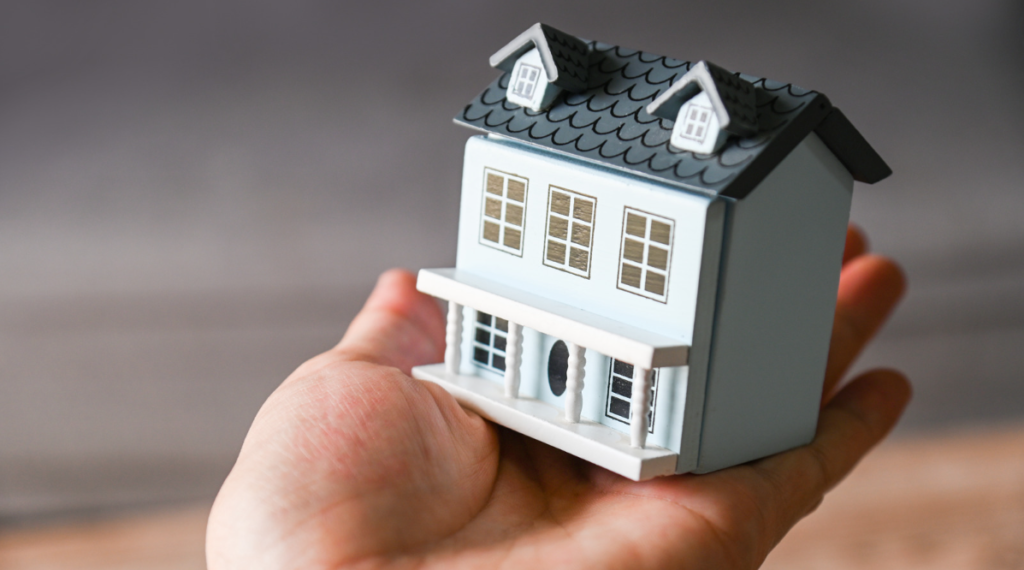Commercial property loans are financial products specifically designed to help businesses purchase, develop, or refinance commercial real estate. Unlike residential mortgages, commercial property loans cater to properties used for business purposes, such as office buildings, retail spaces, warehouses, and industrial complexes. Understanding these loans is essential for business owners and investors looking to expand their real estate portfolio or secure a new business location.

What Are Commercial Property Loans?
Commercial property loans are secured loans where the collateral is the commercial real estate itself. These loans are typically used by businesses to purchase, construct, or improve commercial properties. The terms, interest rates, and requirements differ significantly from residential loans, reflecting the higher risk and larger sums of money involved in commercial real estate transactions.
Types of Commercial Property Loans
- Traditional Commercial Mortgage: This is the most common type of commercial property loan, similar to a residential mortgage but for commercial purposes. It involves a fixed or variable interest rate and is typically offered by banks and credit unions.
- SBA Loans: The U.S. Small Business Administration (SBA) offers two loan programs, SBA 7(a) and SBA 504, to help businesses purchase commercial properties. The government partially guarantees these loans, making them accessible to small businesses that might not qualify for traditional financing.
- Bridge Loans: Businesses use these short-term loans to bridge the gap between immediate financing needs and long-term solutions. They provide quick funding to seize property opportunities or cover expenses while waiting for long-term loan approval.
- Hard Money Loans: Offered by private lenders, hard money loans are short-term, high-interest loans based on the value of the property rather than the creditworthiness of the borrower. They are often used for fix-and-flip projects or when quick financing is required.
- Construction Loans: Specifically designed for constructing new commercial properties, these loans cover the costs of land acquisition, construction, and sometimes even equipment. They are typically short-term and convert to a permanent mortgage upon completion of the project.

How to Qualify for a Commercial Property Loan
Qualifying for a commercial property loan requires meeting specific criteria that vary by lender but generally include the following:
- Creditworthiness: A good credit score and credit history are essential, as they demonstrate your ability to manage and repay debts.
- Business Financials: Lenders will review your business’s financial statements, including income statements, balance sheets, and cash flow projections. A strong financial standing increases your chances of securing a loan.
- Down Payment: Commercial property loans often require a substantial down payment, typically ranging from 15% to 35% of the property’s purchase price.
- Collateral: The property itself acts as collateral, but lenders may require additional collateral or personal guarantees, especially if the business is a start-up or has weaker financials.
- Debt Service Coverage Ratio (DSCR): Lenders evaluate your DSCR, which measures your business’s ability to cover its debt obligations. A DSCR of 1.25 or higher is often preferred.
The Application Process
Applying involves several steps:
- Pre-Qualification: Before formally applying, you can get pre-qualified to estimate how much you can borrow and at what terms.
- Documentation: Gather necessary documents, including business financial statements, tax returns, business plans, and details of the property you wish to finance.
- Loan Submission: Submit your loan application along with the required documentation. Be prepared for a detailed review process where the lender may request additional information.
- Property Appraisal and Inspection: The lender will order an appraisal and inspection of the property to determine its value and condition.
- Approval and Closing: Once approved, you’ll receive a commitment letter outlining the terms of the loan. Upon acceptance, the closing process begins, where all documents are signed, and funds are disbursed.

Benefits of Commercial Property Loans
- Leverage: By using a commercial property loan, businesses can leverage their investment, buying property with only a fraction of the total cost upfront.
- Equity Building: As businesses repay the loan over time, they build equity in the property, creating a valuable asset.
- Tax Benefits: Interest payments on commercial property loans are often tax-deductible, providing potential savings for businesses.
- Expansion Opportunities: Owning commercial real estate can facilitate business expansion, providing a stable location and potential income through leasing additional space.
Risks and Considerations
While commercial property loans offer numerous benefits, they also come with risks:
- Higher Interest Rates: Compared to residential mortgages, commercial property loans usually have higher interest rates, reflecting the greater risk for lenders.
- Market Fluctuations: The value of commercial real estate can fluctuate significantly, potentially impacting your investment if property values decline.
- Stringent Repayment Terms: Missing payments on a commercial property loan can have severe consequences, including foreclosure on the property.
Final Thoughts
Commercial property loans are powerful tools for businesses looking to invest in real estate. By understanding the various types of loans available, the qualification criteria, and the benefits and risks involved, business owners can make informed decisions that align with their financial goals. Whether you’re a seasoned investor or a small business owner, navigating the commercial real estate market with the right financing can unlock new growth opportunities for your business. Use this guide as a starting point to explore your options and consult with a financial advisor or loan specialist to tailor your approach to commercial property financing.
FAQs
1. What is the typical interest rate? Interest rates for commercial property loans can vary widely depending on the lender, the borrower’s creditworthiness, and the type of loan. Typically, rates range from 3% to 12%, with SBA loans often offering lower rates due to government backing.
2. How long are the terms? Commercial property loan terms usually range from 5 to 20 years, with amortization periods that can extend beyond the loan term. For example, a loan might have a 10-year term with a 25-year amortization, requiring a balloon payment at the end of the term.
3. Can I get a commercial property loan with bad credit? It is possible, but challenging. Lenders may still offer loans to borrowers with poor credit, often at higher interest rates and with more stringent terms. Hard money loans may be an option for those with bad credit, as they rely more on the property’s value than the borrower’s credit history.
4. What fees are associated? Common fees include origination fees, appraisal fees, legal fees, and possibly environmental assessment fees. It’s essential to review all associated costs with your lender before proceeding.
5. Can I use rental income to qualify? Yes, lenders often consider the potential rental income from the commercial property when evaluating your application. This income can help demonstrate your ability to repay the loan.
Keep Learning
>> Understanding Bridge Loans: What You Need to Know
>> Fix and Flip Loans: Your Ultimate Blueprint to Real Estate Success
>> Hard Money Lenders: The Ultimate Guide to Your Real Estate Success


